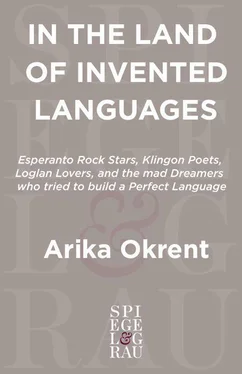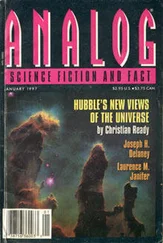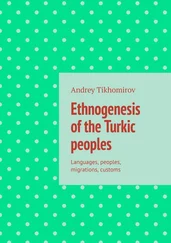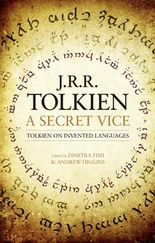Still, the split was not complete. Bob considered himself to be working on Loglan—Brown’s language—and he still held out hope for the possibility of reconciliation. In October, Bob and Nora married. On their honeymoon in Colonial Williamsburg, in a demonstration of their commitment both to Loglan and to each other, they sustained a two-hour Loglan conversation. Most of it was spent trying to establish that each had understood what the other one said, as good a foundation for a marriage as any.
Upon their return, Bob redoubled his efforts toward his mission. He announced Loglan-88 at a science fiction convention, collected new recruits, and started putting out his own newsletter. A few weeks into 1988, “Jim had fifty Aficionados, and I had a mailing list of three hundred.” In March, he received a letter from Jim, notifying him that he was in violation of Loglan’s trademark (to be registered shortly) and that, should he not cease such violation, he risked being sued “for the recovery of profits, damages and costs, with, as you may know, the possibility of treble damages and attorney’s fees.”
With that letter, the gauntlet had been irretrievably thrown. Loglan-88 was officially renamed Lojban (from the new words logji , “logic,” and bangu , “language”), and the Lojbanists incorporated their own, competing (nonprofit) organization, the Logical Language Group (LLG). A year later, the LLG challenged the Loglan trademark. After almost two years of motions and counter-motions, the Trademark Trial and Appeal Board ruled that the trademark should be canceled. A few months later, Brown filed an appeal, and the case went to trial before the federal circuit court. Bob hadn’t seen Brown for six years, and hadn’t had any direct communication with him for five, when they finally came together in a courtroom in 1992. But no words would be exchanged, not even a glance. “I’d never been snubbed so completely,” Bob told me. “He refused to look at me, like I didn’t exist.” Brown lost the appeal.
Can a person own a language? The law is still not really clear on that. The Loglan case did not settle the matter; it said only that the word “Loglan” could not be trademarked because at the time the trademark was filed (over thirty years after Brown had coined the word) it was already in general use as a “common descriptive term.” (The Loglan case would later be cited in a judgment against Harley-Davidson when the motorcycle company claimed that another company’s use of “hog” to mean “motorcycle” was trademark infringement.) The Lojbanists were free to use the word “Loglan” to describe their project (though they continued to call it Lojban).
There is much more to a language, of course, than its name. At the beginning of the dispute (but not in court), Brown claimed he owned the rights to the vocabulary of Loglan. Did he? Brown did have copyrights on his books, including the dictionary. But copyright does not extend to each individual word in a copyrighted work, only to the particular configuration of the words. Would it have been possible for him to copyright each Loglan word sepa-rately? Perhaps, but he didn’t; to do so would have been too costly and time-consuming (and useless, since the Lojbanists had already made their own words). In any case, such a strategy for language ownership has never been attempted, and it is not clear what the law would have to say about it if challenged in court.
There is yet more to a language than its words. Language is also a system, a set of rules for creating sentences and deriving other words. These rules were very explicit in Loglan, and they were the part of the language that had involved the most effort to develop. Can the rules of a language be owned? Probably not. You can patent a machine that uses a certain mathematical formula, but not the formula itself. You can own an implementation of an algorithm, but not the algorithm. There is, however, some blur in this area within the murky world of software patents, so given the right lawyer and the right judge, who knows?
There is one invented language that is essentially owned by a private company, though the terms of ownership have not been tested in court: Klingon is protected by a trademark held by Paramount Pictures. Without proper license, you cannot use the name “Klingon” to describe, say, a book of your own original Klingon poetry. But could you sell the same poems if you didn’t explicitly call them “Klingon” poems? It’s probably not worth it to you to find out, unless the sales of your poetry have somehow provided you with the resources to fight off a bottomless barrel of lawyers. As a practical matter, Paramount owns whatever aspects of the language they say they own. As a legal matter? Unless someone comes up with a very compelling reason to bring on the lawyers, we’ll never know.
In his original Scientific American article, Brown set himself apart from the mad language inventors, with their Utopian missions and blindly confident claims, by presenting himself as the cool, impartial scientist. Clearly, he was anything but cool and impartial.
In the final few pages of the final chapter of his final book on Loglan, the revised grammar he published in 1989, we get a brief, illuminating glimpse of his unguarded ambitions when he launches into a breathless description of what might happen if the experiments showed that Loglan did indeed have a “mind-expanding, thought-facilitating” effect:
Wouldn’t the entire experimental program, in fact, now be seen as a successful assessment of a proposed new educational experience, one that was available to everyone? It might even be seen as a treatment of a disease we didn’t know we had! LLL, the disease of “logical language limitation,” or UNM of “unnecessarily narrowed minds” … And wouldn’t Loglan itself then be seen as the gentle new cure for that ancient human malady? … An antidote for the bigotry with which even “civilized people” tend to view their neighbors in the global village? … This is what is very likely to happen given what the journalists will call a “positive” outcome of our Whorfian experiment … Backed up by such a result, Loglan would probably be seen as ideal in the role of that international auxiliary, for example: the first language to be taught to the world’s school children, the one slated to become everybody’s second tongue … our engineered new second-language would be seen as the mind-expander, the instrument of thought, reason, invention, and exposition … and perhaps also the medium of intercultural mediation, a culture-spanning bridge to a more tolerant and peaceful world.
You can almost see the film reel unrolling behind his starry eyes—the international news conferences, the front-page headlines, the Nobel Prize ceremony. His hopes for Loglan, and for himself, were much grander than he let on. Beneath the detached scientific demeanor lay the passionate soul of a language inventor.
“When he lost the case, Jim couldn’t believe it,” his widow, Evelyn Anderson, told me. “Both he and his lawyer thought they had it for sure. But within a few months he wasn’t talking about it anymore. He just moved on.” He put his energy into other projects—a paper on his theory of the origin of language, a book about his Utopian economic plan, called The Job Market of the Future . He continued to work with a small group of loyal Loglanists, one of whom told me he thought “the split did soften his attitude toward suggestions and criticism from those who stuck with him.”
Brown was seventy-one when he lost the case and had been working on Loglan for over thirty years. It hadn’t brought him money or fame, but it did yield some happiness points. “He considered it pure joy when he was working on it,” Ms. Anderson told me. “Right until the end he was working out something that he found totally fascinating, and he was not put off by the fact that it had not achieved what he had …” She paused for a moment, then continued. “He went to his death thinking it was the greatest thing that he had published.”
Читать дальше












